Post
A catch
Save a catch to start your fishing logbook. You will be able to to share it with the community if yo want!
A fishing trip
Post an ad to go fishing with other fishermen
Save a catch to start your fishing logbook. You will be able to to share it with the community if yo want!
Post an ad to go fishing with other fishermen
Share a thought, a question with the community
My favorite cities
×Join our 283 fishermen and our 1 cofisherman in Whitland in Carmarthenshire. The fishing forecast is currently 3.8. The most caught fishes here are the european eel, the sting ray fish, the wrasse fish and the dab fish. Come try the most famous fishing techniques like the how to fish for sole at sea?, support fishing for sea bream, tips on material for mullet fly fishing or support fishing for bass.
Our fishing forecast of Whitland indicates the best time to go fishing in this city.
The European Eel
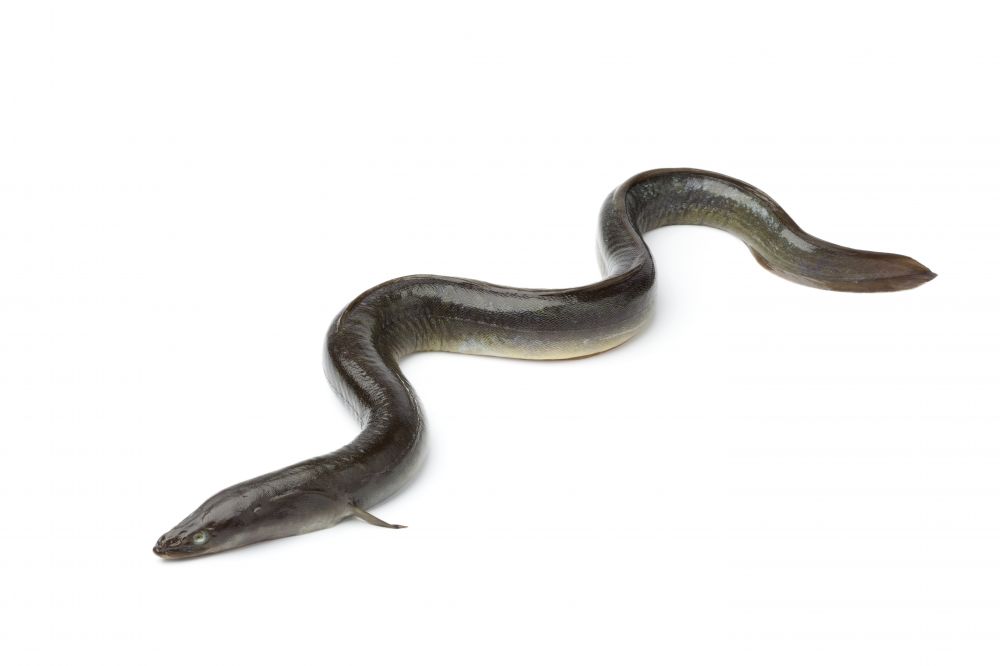
The European Eel belongs to the Anguillidae family. The european eel can reach a maximum size of 1.50 m and a weight of 3 kg. However, males rarely exceed 45 cm. The current size is more modest and varies between 40 and 60 cm. Its longevity is 12 to 20 years but in captivity it can reach more than 50 years. They can be fished from June to September. The European eel has a snake-like body, with a circular cross-section and very elongated. The body is covered with smooth, viscous skin, rich in thick mucus-secreting cells. The scales are small, oval and deeply embedded in the skin. It has a small round eye and a terminal mouth. The lower jaw is prominent. The color of the eel varies as it grows. In the yellow eel stage, it has a brownish, greenish or yellowish color depending on its habitat (homochrome). The lateral line is not very visible. In the silver eel stage, the back is dark green, the sides have silvery highlights and the belly is pearly white. The lateral line becomes very visible. The body of the European eel does not have pelvic fins. The pectoral fins, the only even fins, are small. On the other hand, odd fins (dorsal, anal, caudal) are very long and fuse at the tail.
The European Eel is a famous fish you can catch in Whitland.The Sting Ray fish
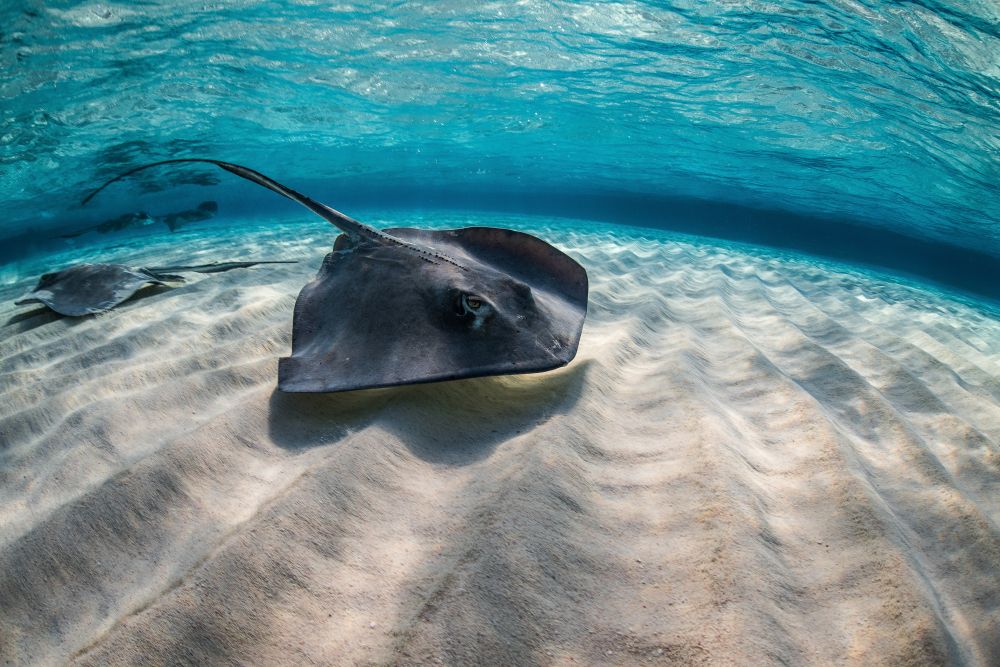
The Sting Ray fish belongs to the Dasyatidae family. The total length of this line is generally greater than 1 m, with a weight of 15 to 20 kg. The maximum known length is 2.50 m. The maximum lifespan is 20 years. Breeding usually takes place in summer. The female gives birth to 4 to 9 young. It can be fished all year round. The body of the sting ray is flattened, diamond-shaped, pointed at the front, with large pectoral fins: it is as wide as it is long. The tail, representing 60% of the total length, looks like a whip and, at one third of its base, it has a serrated spine, connected to venomous glands under the skin. The dorsal surface is bluish grey or reddish-grey in color, sometimes with white spots. This back is smooth, without tubers. The ventral side is clear. The sting ray has no dorsal fin or caudal fin and its pelvic fins are very small. The eyes are located on the dorsal surface while the mouth, nostrils and gill slits (five slits on each side) are on the ventral surface. The eyes are prominent, which gives him a very wide field of vision. Next to the eyes, an inhalant valve, called a spiracle, carries water into the gills. The mouth is located quite far back. Teeth are numerous and small, pointed in males and molar-shaped in females. The tail acts as a simple rudder and is not used for movement. It is done by the large pectoral fins, by beating. These fins are also used for burying in sand.
The Sting Ray fish is a famous fish you can catch in Whitland.The Wrasse fish
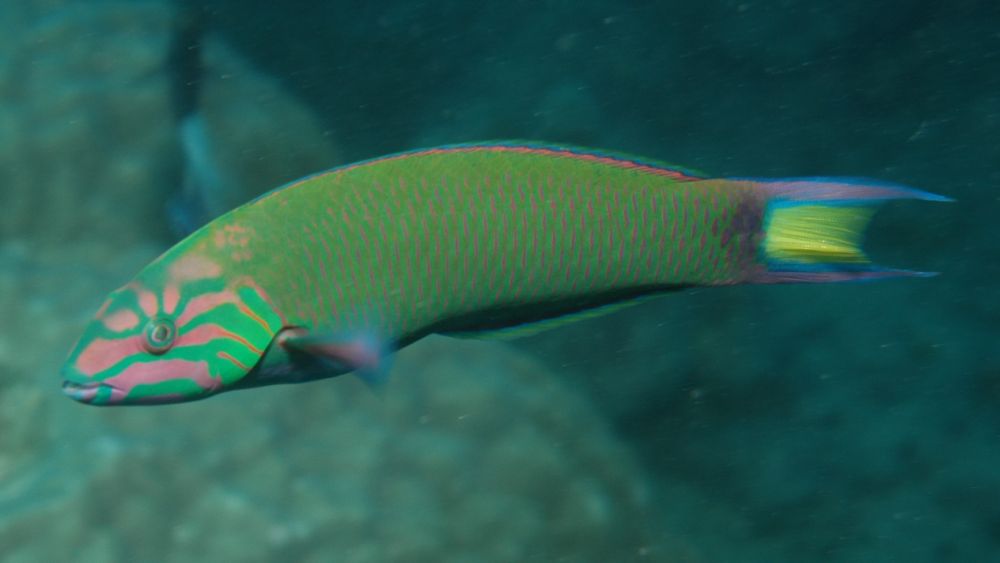
The Wrasse fish belongs to the Labridae family. Labridaes are marine fish, the Wrasse of the Labridae family, in the order of Perciformes. The family is large and diverse, with about 500 species of fish generally very colourful, grouped into 60 genera. The large number of species of wrasse offers an incredible diversity of colors, shapes and sizes with possible geographical variations between some individuals of the same species. In addition, like parrot fish, many livers evolve over the course of their lives according to their maturity and their position within the group. These evolutions can be considered in different phases (juvenile, intermediate or initial and terminal) at each of them, morphological modifications (size, shape and color) take place. All these variations in livery during the existence of a wrasse make it particularly difficult to identify between species, the risk of confusion is great and this even for specialists. During the juvenile phase, the dominant colors can vary from bright yellow to orange, as well as dull colors such as grey and brown with camouflage patterns. In the intermediate or initial phase, the wrasse is both male and female, adult but subordinate to the dominant individuals and therefore smaller with dull colors and cryptic patterns. However, in the terminal phase, depending on the species, fish can change sex, size and livery. The latter becomes a distinctive visual element within the group and is very colorful with red, yellow, gree
The Wrasse fish is a famous fish you can catch in Whitland.The Dab fish
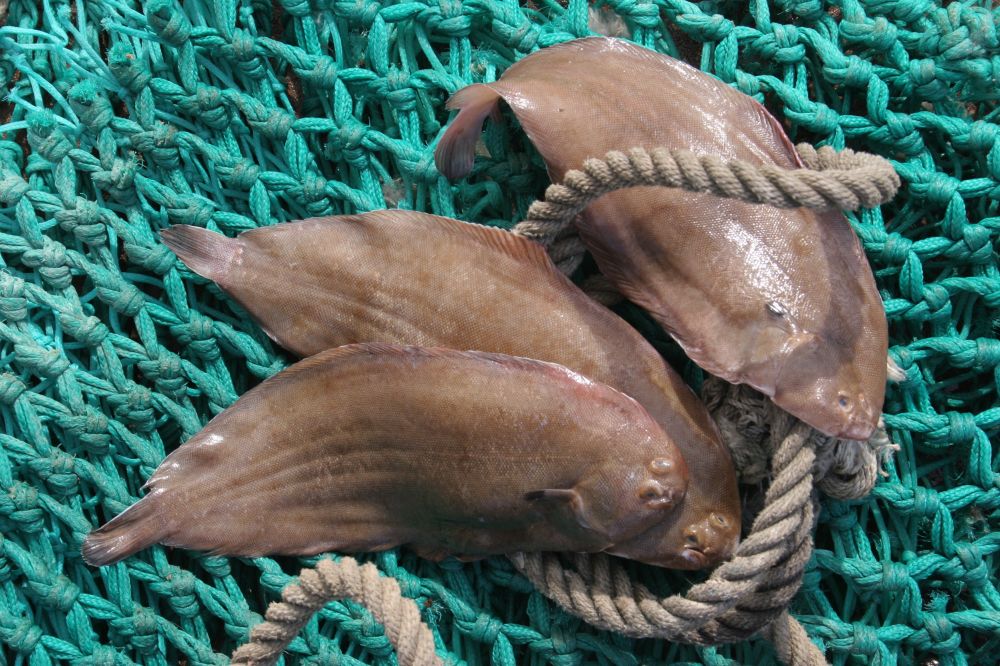
The Dab fish belongs to the Pleuronectidae family. It has an average size of 25 to 40 cm with an average weight of 1 kg. It has a lifespan of 12 years. The Dab fish breeds from February to April. The female lay up to 150,000 oocytes. The Dab fishing is open from October to Mars. the minimum catch size is 25 cm. The Dab fish, scientifically named Limanda Limanda, is a teleosteal species that belongs to the pleuronectidae or flatfish family. It has a flattened body with a more or less oval shape. The eyes of this dexterous fish are both generally located on the right side. The animal has a tiny mouth with small teeth. Its lateral line is curved at the pectoral fin. A characteristic feature that allows it to be easily distinguished from other species with similar morphology such as flounder. Thin scales cover the upper surface of the flounder, making its skin rough to the touch. The back is golden or yellowish brown in color and has dark spots. The belly or blind face is white. Varying from beige to light brown, the general color of dab allows it to blend in with the backgrounds.
The Dab fish is a famous fish you can catch in Whitland.The Whiting fish
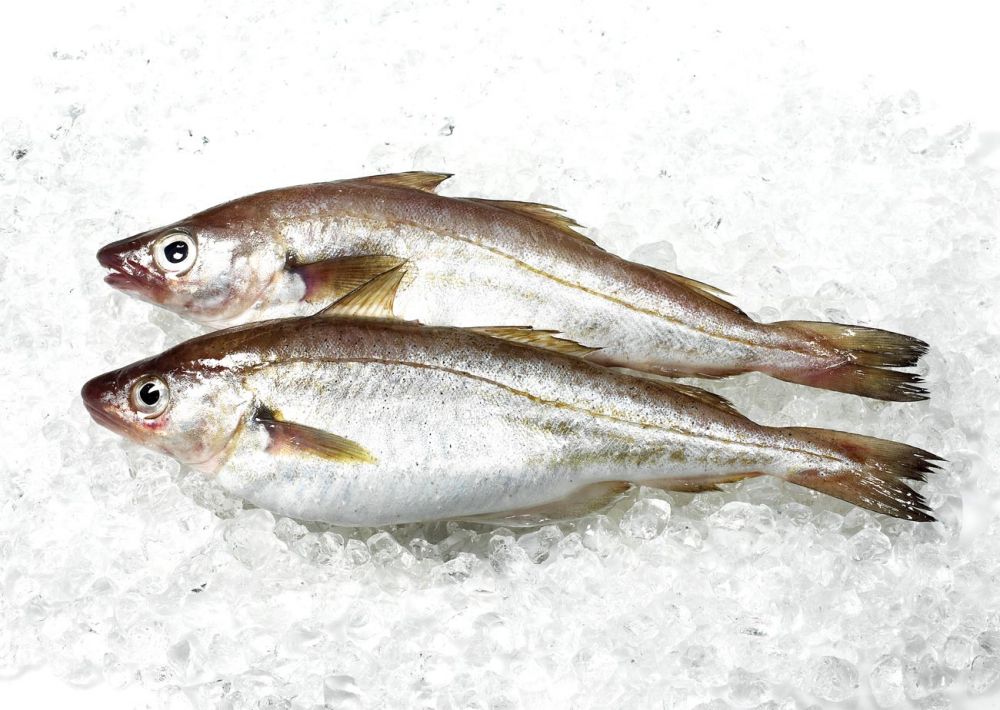
The Whiting fish belongs to the Gadidae family. Whiting grows quite quickly and measures about 30cm at the age of two years. At 5 years old, it measures about 50cm for a weight of about 1kg. Its maximum size reaches 70 cm. its lifespan is 22 years. It reproduces from January to April. A female can lay from 200,000 eggs to 1 million eggs. It is fished in winter. Its color is variable and can be yellowish brown, dark blue or green. Its sides are yellow-grey, white and its belly is silvery. A small dark spot is often present at the upper base of the pectoral fins.
The Whiting fish is a famous fish you can catch in Whitland.Our fishing forecast of Whitland indicates the best time to go fishing in this city.
Our fishing forecast of Whitland indicates the best time to go fishing in this city.
Our fishing forecast of Whitland indicates the best time to go fishing in this city.
